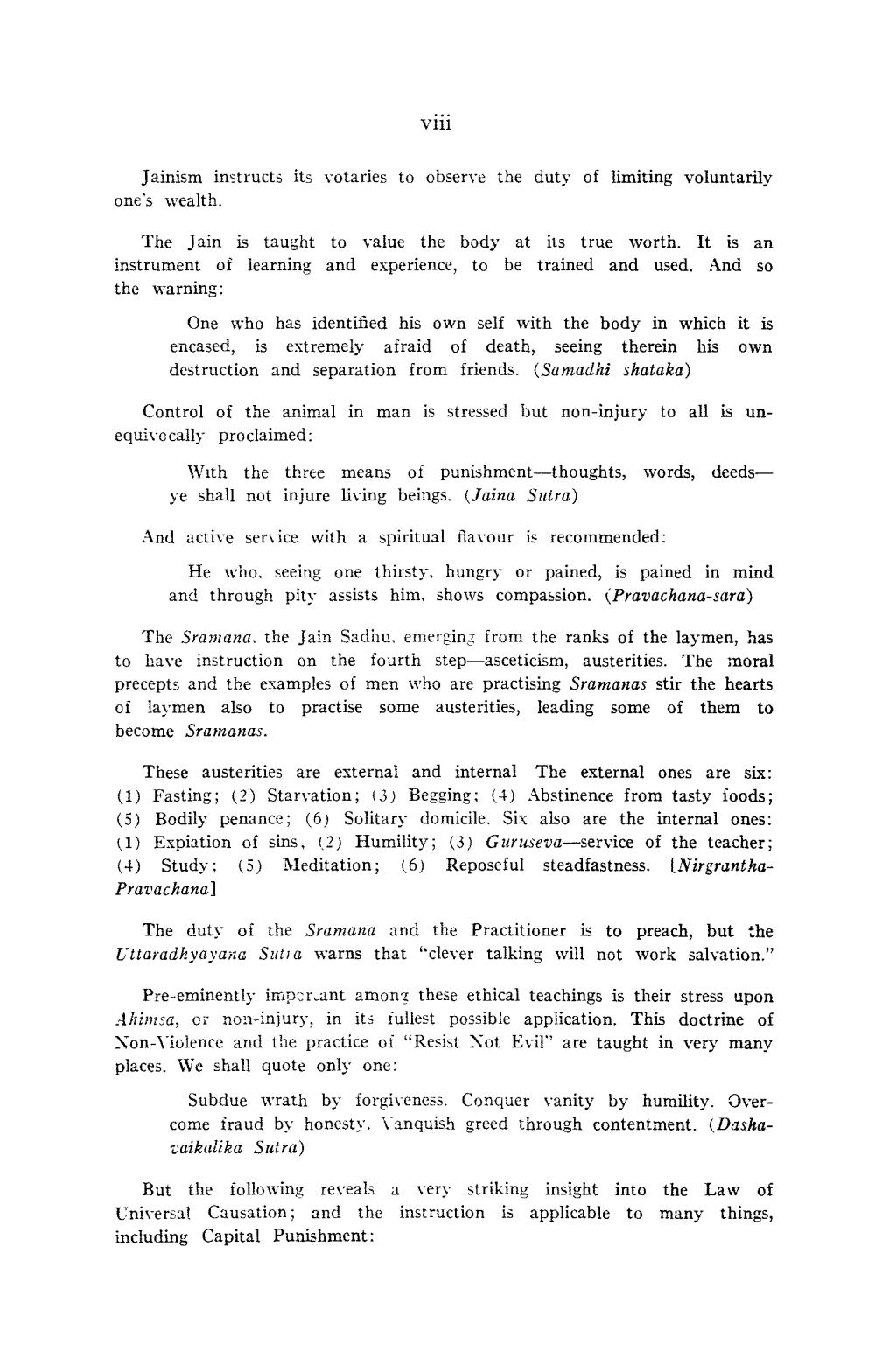________________
Vill
Jainism instructs its votaries to observe the duty of limiting voluntarily one's wealth.
The Jain is taught to value the body at its true worth. It is an instrument of learning and experience, to be trained and used. And so the warning:
One who has identified his own self with the body in which it is encased, is extremely afraid of death, seeing therein his Own destruction and separation from friends. (Samadhi shataka)
Control of the animal in man is stressed but non-injury to all is unequivocally proclaimed:
With the three means of punishment-thoughts, words, deedsye shall not injure living beings. (Jaina Sutra)
And active service with a spiritual flavour is recommended:
He who, seeing one thirsty, hungry or pained, is pained in mind and through pity assists him, shows compassion. (Pravachana-sara)
The Sramana, the Jain Sadhu, emerging from the ranks of the laymen, has to have instruction on the fourth step-asceticism, austerities. The moral precepts and the examples of men who are practising Sramanas stir the hearts of laymen also to practise some austerities, leading some of them to become Sramanas.
These austerities are external and internal The external ones are six: (1) Fasting; (2) Starvation; (3) Begging; (4) Abstinence from tasty foods; (5) Bodily penance; (6) Solitary domicile. Six also are the internal ones: (1) Expiation of sins, (2) Humility; (3) Guruseva-service of the teacher; (4) Study; (5) Meditation; (6) Reposeful steadfastness. NirgranthaPravachana]
The duty of the Sramana and the Practitioner is to preach, but the Uttaradhyayana Sutia warns that "clever talking will not work salvation."
Pre-eminently important among these ethical teachings is their stress upon Ahimsa, or non-injury, in its fullest possible application. This doctrine of Non-Violence and the practice of "Resist Not Evil" are taught in very many places. We shall quote only one:
Subdue wrath by forgiveness. Conquer vanity by humility. Overcome fraud by honesty. Vanquish greed through contentment. (Dashavaikalika Sutra)
But the following reveals a very striking insight into the Law of Universal Causation; and the instruction is applicable to many things, including Capital Punishment:




